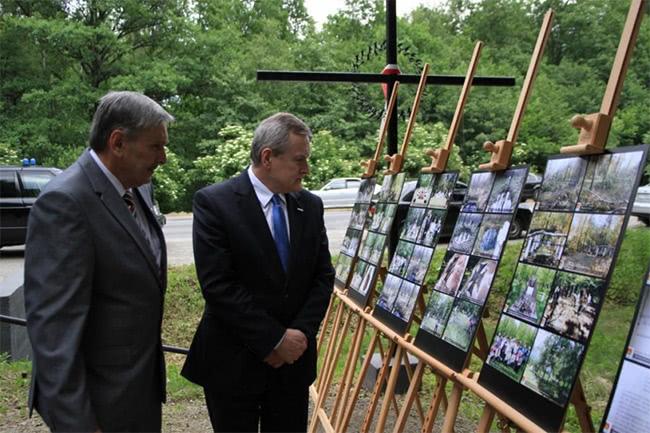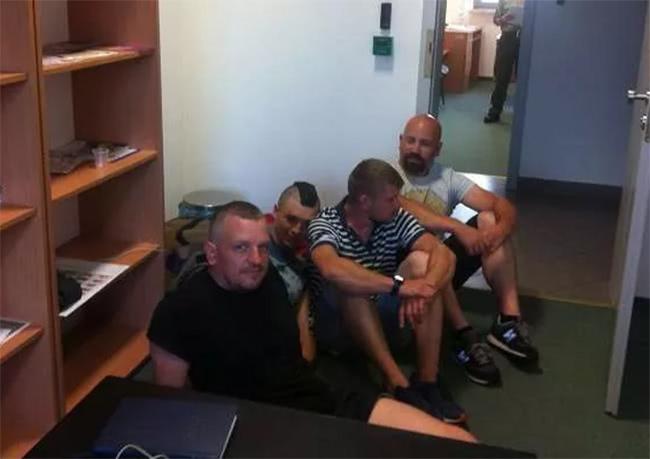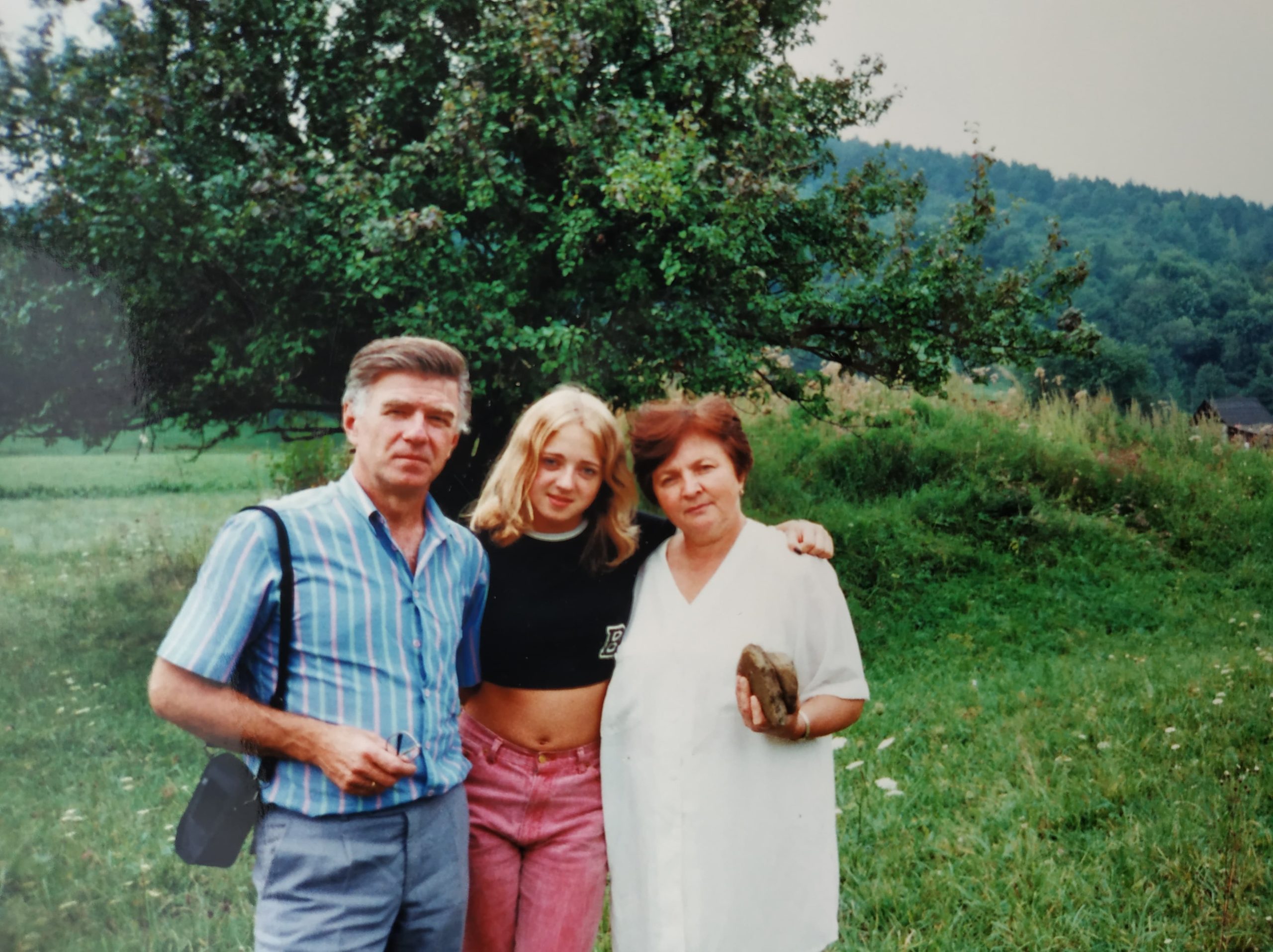The Polish Sejm's recent attempts to vote for the project “On Fighting the Propagation of Banderism” signify the culmination of deteriorating relations between Kyiv an Warsaw. Accusations addressed towards Ukraine are voiced in Poland on a daily basis, but they repeat points which have been made long ago, and the reasons for them lie in internal Polish politics. In this article for The Insider which we translated and updated, Ihor Isajew, chief editor of PROstir.pl, the Multimedia Portal of Ukrainians in Poland, outlines how relations between Ukraine and Poland came to this point and what the future holds.
Bartering the past in a package with the present
The bar on exhuming remains of Poles in Ukraine is not truly a bar, only a moratorium. It is a step which the Ukrainian Institute of National Memory initiated at the end of April in response to the dismantling of a memorial to the Ukrainian Insurgent Army (UPA) in the village of Hruszowice in eastern Poland. By this point, several dozen Ukrainian memorials throughout Poland had been vandalized, often by blatantly pro-Russian agents. However, Warsaw, unlike Kyiv, did not take a single step against the vandals - at least, until 21 November, when, according to Ukraine’s ambassador to Poland, progress in dialogue had been made and Warsaw agreed to restore the monuments vandalized since 2014. At the same time, the question of Polish memorials and gravesites, especially beyond Polish borders, has become a profound element of politics of the Law and Justice Party, which governs Poland. The prohibition of exhumations has become a reason for the reduced number of visits from Polish officials to Kyiv. On 23 October, Poland’s Vice-Minister of Culture Piotr Glinski visited Kyiv, where he with his Ukrainian counterpart Yevhen Nyshchuk. After the meeting, which went on for three hours, the Polish side released a statement, in which they made clear Warsaw’s position: the question of exhumation of remains must be separated from the question of vandalism of memorials, and discussions must be carried out not on the level of Institutes of National Memory (as they had been), but rather on the level of the Ministries of Culture.“This should renew the work of the Inter-Governmental Commission for Matters of Protection and Return of Culturally Significant Objects, placing it in the authority of the chief Vice-Prime-Minister and Ministers responsible for culture and national heritage in both countries,” Warsaw announced, emphasizing that this commission exists, even though it has not functioned since 2015.

“The Ukrainian side, after long discussions, agreed to renew the work of this commission as quickly as possible, to continue its work on a serious political level,” Piotr Glinski announced victoriously, after his discussions in Kyiv.This statement amazed the Ukrainian side, because no such agreement had been reached. The words of the Polish Vice-Prime-Minister did not represent reality, and was refuted by Volodymyr Viatrovych, the head of the Ukrainian Institute of National Memory, who also took part in the discussions. The Ukrainian Ministry of Culture released its own statement, in which it said:
“The Ukrainian side considers that there is still potential to discuss matters on the level of currently empowered structures… Apart from that, the creation of a new structure would require the carrying out of changes to existing legislation in Ukraine and would take much time.”Why does Poland want to carry on discussions on a government level, while Ukraine considers it necessary to leave discussions on the level of the Institutes of National Memory? Warsaw is convinced that it can push the matter of exhumation of remains as part of a “packet” including economic and investment projects, as it had during the Kuchma and Yanukovych administrations, but it can only do this at the governmental level. Ukrainian participants in the discussions are afraid of such a “barter”, and several believe that Ukraine has finally begun to build an independent politics of history, and it would be better not to throw it away.
How the Polish Ministry of Foreign Affairs renounced diplomacy
Warsaw was perplexed by the inability to easily reach an agreement with Ukraine on questions of history. Declarations of Polish officials after Glinski’s visit reveal their aggravation and fury: Polish Minister of Foreign Affairs Witold Waszczykowski announced on 2 November that Poland has created a list of Ukrainian persona non grata for their “anti-Polish positions” and he added that it would include certain Ukrainian officials “who utilize administrative instruments against Poland.” [...] [Editor’s note: On 9 November, Polish media wrote that the Head of the Institute of National Memory Volodymyr Viatrovych has been blacklisted from entering Poland, Yevropeiska Pravda reported. Commenting to Dziennik Gazeta Prawna, Waszczykowski said the list will not be made public, but considers it “too short,” Onet.pl reported. Ten days later, the head press service of the Polish MFA confirmed to TVN 24 that Polish blacklist was the reason for Sviatoslav Sheremeta, Secretary of the Ukraine’s State Interdepartmental Commission for Matters of Memory of ATO Participants, Victims of War and Political Repressions, being turned around at the Polish border. Despite Ukraine having reached an agreement with Poland to reduce its blacklist, according to Ukrainian President Poroshenko speaking at a briefing after a meeting with Polish President Andrzej Duda on 13 December, this issue is a painful reminder of the way historical memory is setting the two countries apart.]
Winning the memorial contest
Last year Poland dismissed an agency with a long name: “The Council for the Protection of the Memory of Resistance and Martyrdom.” Previously, it dealt with Polish memorials, particularly those outside Poland. The agency’s competence (and, more importantly, its budget) are now split between two other agencies: the Polish Ministry of Culture and the Institute of National Memory. Who receives what has not been clearly publicized, but currently these two agencies are holding their own battle for supremacy In June, the Polish Institute of National Memory signed an agreement with the country’s Ministry of Foreign Affairs, which foresaw the popularization of Polish history. Certain officials at the Institute of National Memory decided that with the help of Polish diplomats they could push for the protection of memorials beyond Poland’s borders. And Kyiv holds the keys to the victory in this war between agencies: whoever solves the problem of Polish exhumations on the territory of Ukraine will deal with all Polish memorials outside Poland. And this means prestige, a larger budget, and political importance. This is why the recent month has been full of visits by the Polish Minister of Culture, Minister of Foreign Affairs, and delegates of the Polish Institute of National Memory to Ukraine. And this is why their statements get more and more radical - highly-placed officials are increasing their price. This all took place against the backdrop of ongoing discussions about a government reshuffle in Poland, where Witold Waszczykowski was one of the first candidates for resignation [...][Editor’s note: Waszczykowski retained his position in the reshuffle which took place on 11 December, bringing Poland a new Prime Minister. It’s likely that a victory on the “Ukrainian Front” has protected his career]. The victory needed not be factual, but had to be ideological: if he can’t reach an agreement with his Ukrainian counterparts, then he can do the opposite – end all current cooperation, so he may afterwards establish “new” cooperation with Ukraine. The Polish-Ukrainian dialogue of historians was renewed after the Euromaidan revolution, under the previous Polish government: today’s government might dream of ending the heretofore agreed-on format for dialogue, and to then establish a new format under new conditions.
Trending Now


 Written by Ihor Isaiev, the chief editor of PROstir.pl, the Multimedia Portal of Ukrainians in Poland
Written by Ihor Isaiev, the chief editor of PROstir.pl, the Multimedia Portal of Ukrainians in Poland
Read also:
- Polish-Ukrainian confrontation over historical past gains momentum
- Polish ruling party: Ukraine’s version of historical memory of Volyn is “a problem”
- The Volyn Tragedy: Reconciliation or Confrontation?
- Poland’s new prime minister and the Polish-Ukrainian dialogue
- Coal from occupied Donbas is being sold to Poland – media
- Despite differences in historical issues, Poland wants partnership with Ukraine – Polish FM
- Why Poland should support Ukraine
- Spoiling Ukrainian-Polish relations: next phase in Kremlin’s hybrid war
- Attack on Poland’s Consulate General in Northwestern Ukraine seen as provocation





